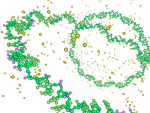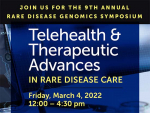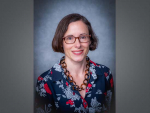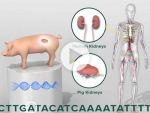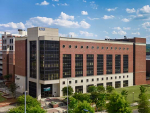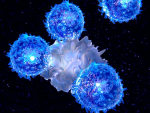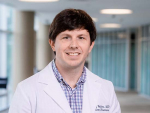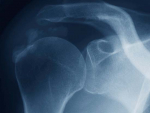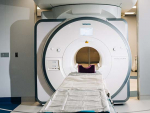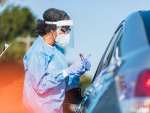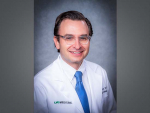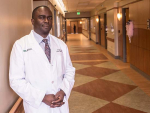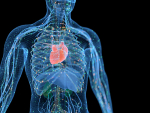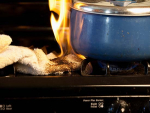Displaying items by tag: school of medicine
Anindya Dutta, M.D., Ph.D., and colleagues now have detailed the first structure-function study of this long non-coding RNA.
The ninth annual Rare Disease Genomics Symposium will take place virtually March 4 from 12-4:30 p.m.
Tagged under
Although combination chemotherapy with radiation has been the standard of care for treating rectal cancer for more than 20 years, very little is known about why some tumors are more resistant to this treatment than others.
Tagged under
Southern Research has 400 full-time employees, brings in $80 million in revenue and has an annual economic impact of $150 million.
Tagged under
With news about UAB’s first peer-reviewed, published transplant of genetically modified pig kidneys into a brain-dead human individual, there are many questions about what this means for the future of transplant and how this will save countless lives moving forward.
Tagged under
Throughout 2020, the decline in pediatric emergency department visits among Black and public or self-insured patients was consistently larger than other demographics.
Tagged under
UAB physicians are working on the next steps to begin compassionate or emergency use of the pig kidneys in living humans. Two major approvals will be required.
Tagged under
Heart-healthy recipes have numerous other health benefits as well, such as strengthening gastrointestinal health and lowering blood-sugar and cholesterol levels.
Tagged under
Tagged under
In response to a viral infection, intrinsic IL-2 production by effector CD8 T cells affects IL-2 signaling, leading to different fates for two subsets of those cells — the one producing IL-2 and the one not producing IL-2.
Tagged under
UAB infectious diseases expert will discuss mask fit, filtration and effectiveness during the coronavirus pandemic in a free webinar Feb. 17 from noon-1 p.m.
Tagged under
Tagged under
The new procedure uses a balloon to separate bones in the shoulder, reducing pain and allowing physical therapy a chance to work.
Tagged under
UAB’s new intraoperative MRI suite allows for real time magnetic resonance imaging during surgical procedures.
Tagged under
The COVID-19 pandemic shined a light on the disparities in health and health care access faced by underserved communities.
Tagged under
UAB maternal-fetal medicine specialists partner with the DCH Health System to provide specialized care for high-risk pregnancy patients in West Alabama.
Tagged under
Consortium led by UAB researchers in the UAB Heersink School of Medicine and School of Public Health received additional funding to further study chronic hypertension and preeclampsia epigenetics participants enrolled in the CHAP trial.
Tagged under
The Cardiogenomics Clinic uses a patient’s genetic history to help develop a personalized treatment plan based on their genetic results.
Tagged under
